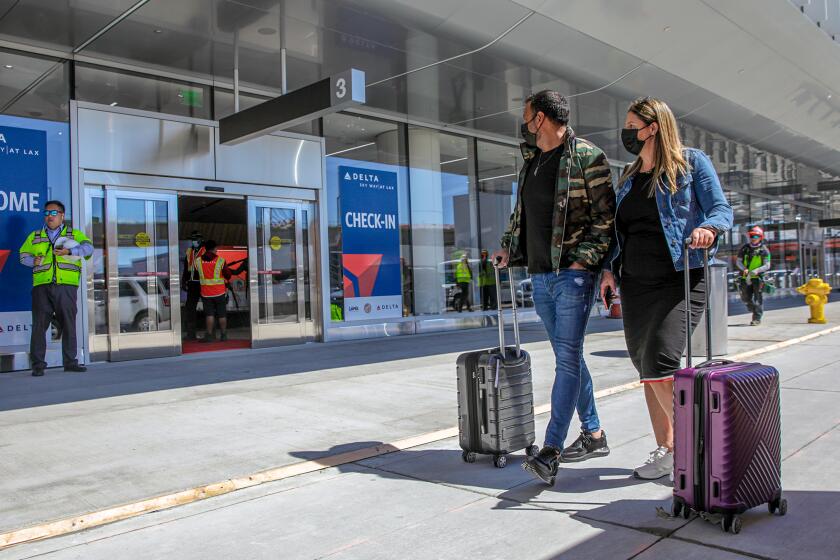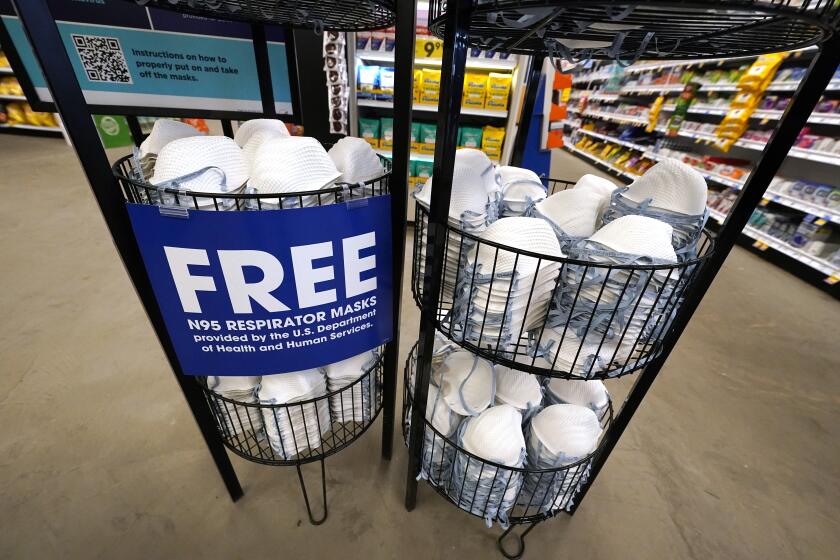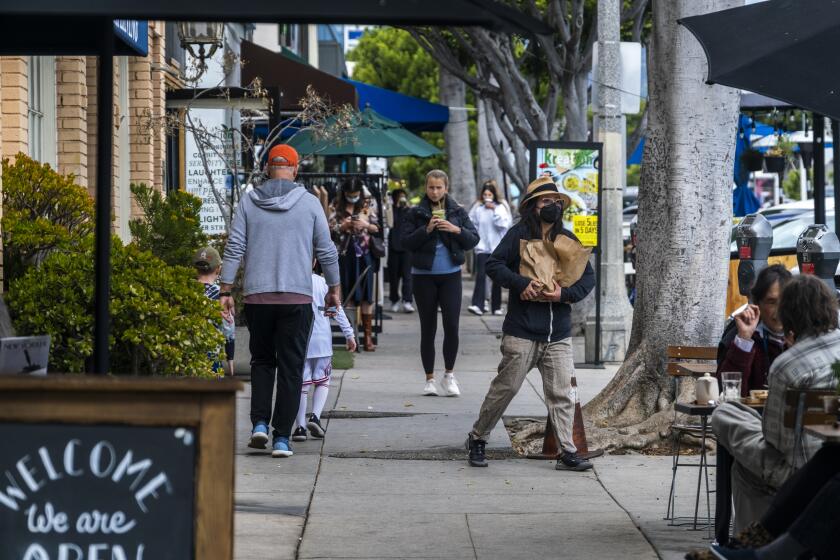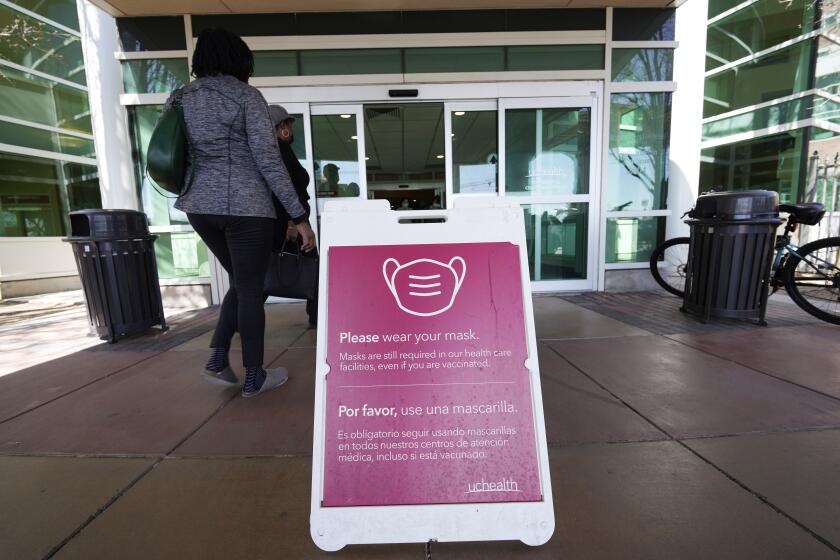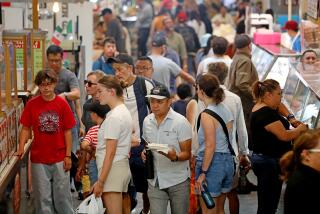Uber? United? Southwest? LAX? Who is lifting travel mask rules and who’s keeping them
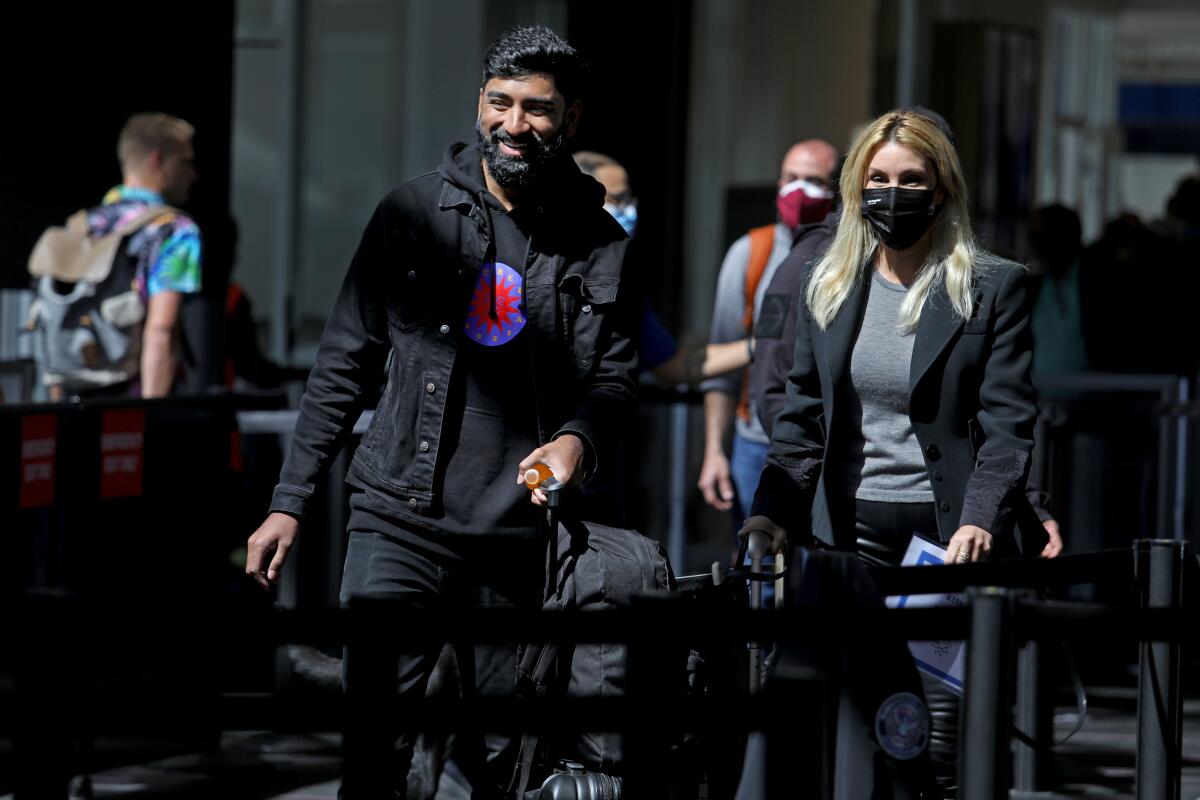
One of the longest-running and most visible measures imposed in response to the COVID-19 pandemic came to a sudden end this week, when a judge in Florida struck down the federal requirement that travelers wear masks aboard public transportation.
Monday’s ruling effectively makes masks optional on trains, buses and airplanes. But some transit agencies and facilities are still urging residents to voluntarily mask up, pending further clarification from the federal government.
Here is where things stand:
A federal judge in Florida voids the national mask mandate covering airplanes and other public transportation as exceeding the authority of U.S. health officials.
What does this court ruling mean?
Monday’s decision means that the federal order issued by the U.S. Centers for Disease Control and Prevention requiring mask use on public transit — including in airports and on planes, buses and trains — is not in effect at this time.
“Effective immediately, TSA will no longer enforce its security directives and emergency amendment requiring mask use on public transportation and transportation hubs,” the U.S. Transportation Security Administration said in a statement.
However, while no longer required, the CDC still recommends people wear masks when using public transportation.
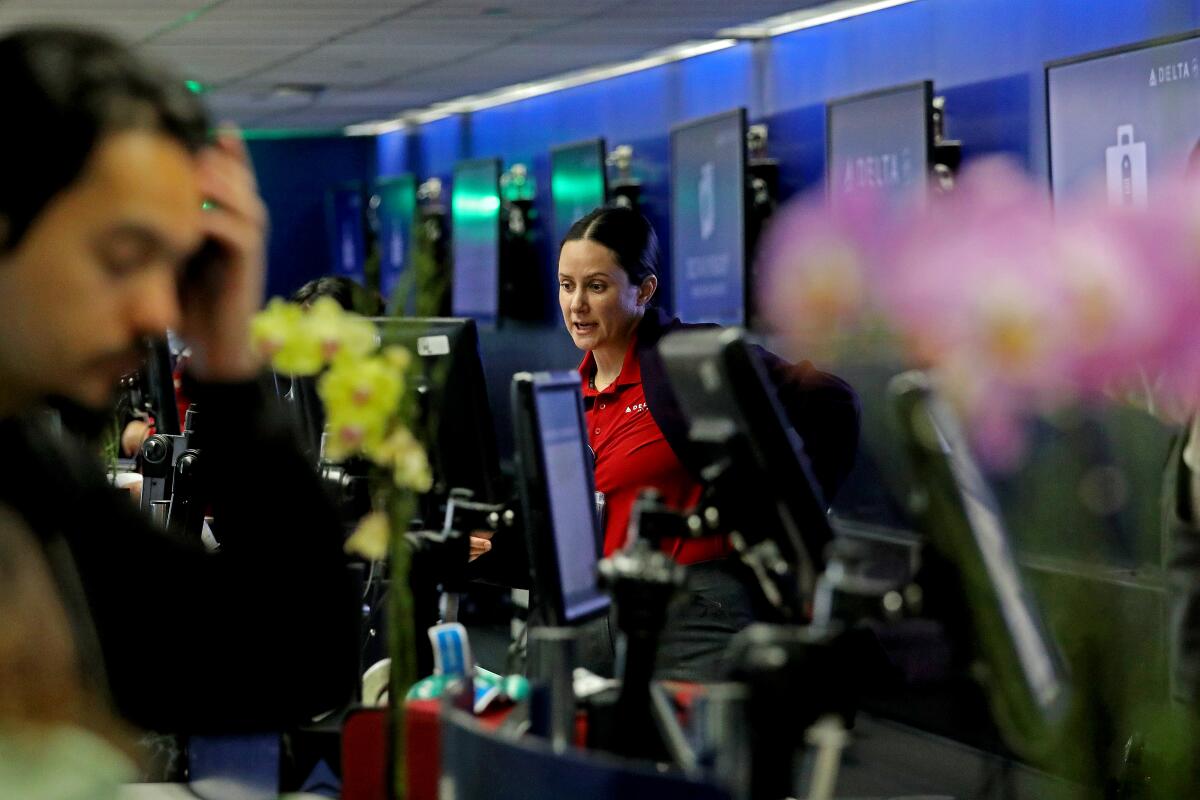
And the ruling may not be the end of the story. In a statement Tuesday, the U.S. Department of Justice said an appeal was possible, “subject to CDC’s conclusion that the order remains necessary for public health.”
Last Wednesday, the statement continued, “CDC explained that the order would remain in effect while it assessed current public health conditions, and that the Transportation Security Administration would extend its directive implementing the order until May 3 to facilitate CDC’s assessment.”
“If CDC concludes that a mandatory order remains necessary for the public’s health after that assessment,” the statement concluded, “the Department of Justice will appeal the district court’s decision.”
A federal judge in Florida overturned the transportation mask mandate, but some local transportation agencies still want passengers to mask up.
What does this mean for LAX?
Los Angeles International Airport is following the TSA’s lead by no longer enforcing the mask requirement “in indoor public transportation settings,” said Heath Montgomery, an airport spokesman.
It will be up to each traveler to decide for themselves whether to wear a mask at the airport, Montgomery said, adding that officials encourage anyone who wants to wear a face covering to continue to do so.
“We encourage everybody to be a good fellow traveler to everybody else and respect the choices they make,” he said.
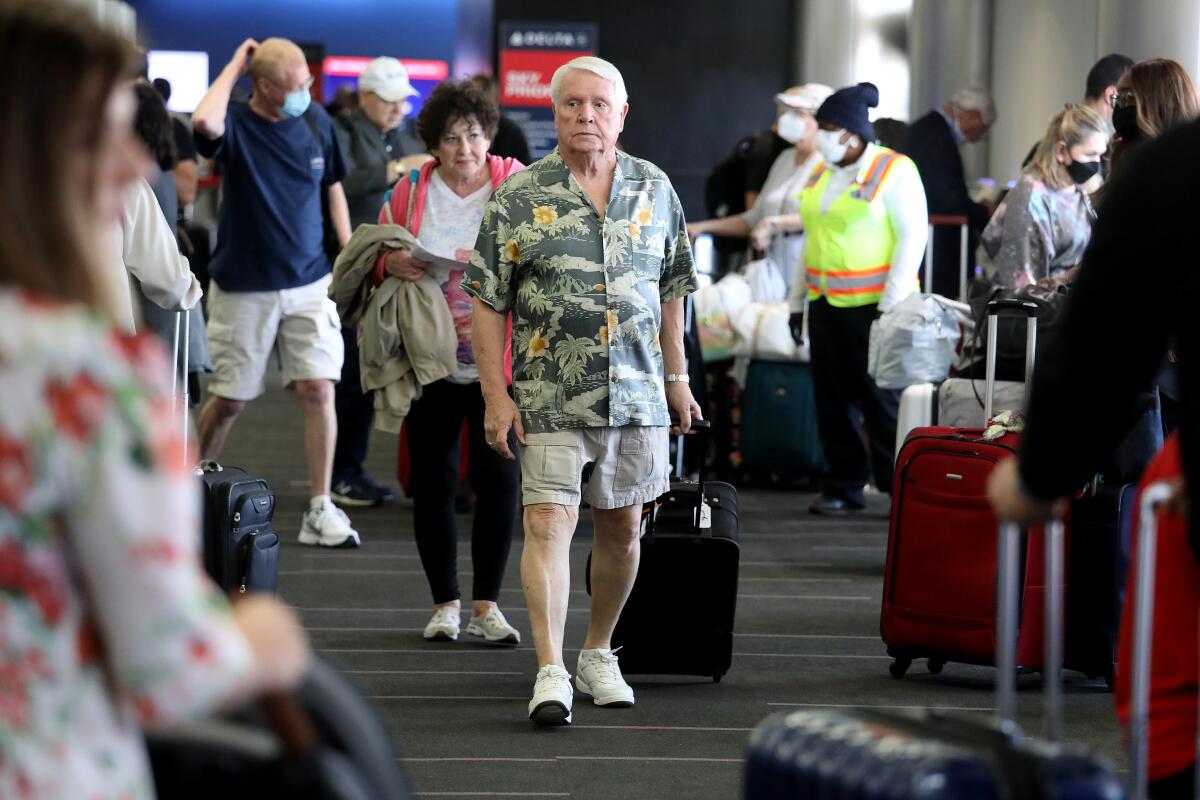
Hollywood Burbank Airport also said mask use is optional, as did the Long Beach Airport, Orange County’s John Wayne Airport, and the Oakland, San Francisco, San Jose and San Diego international airports.
A number of major airlines — including American, United, Southwest, Delta and Alaska — quickly announced that masks would now be optional for customers and employees domestically and on certain international flights, depending on local requirements.
“We encourage individuals to make the best decision to support their personal well-being,” officials at Southwest wrote in a statement.
Despite a recent rise in coronavirus cases, Los Angeles County’s public health director said this week she remained hopeful the region could avoid another major spike by taking sensible precautions.
What about other transit options?
Uber said Tuesday that while mask use is still recommended, face coverings are no longer required when using its rideshare service.
Metrolink, a commuter rail service system for Southern California, said masks are no longer required aboard its trains or at its stations “effective immediately.”
The Los Angeles County Metropolitan Transportation Authority confirmed Tuesday that it, too, is making masks optional — though it still strongly recommends riders wear them.
“With more tools at our disposal to combat this virus, including wider availability of vaccines, tests, and therapeutics, the county can continue to progress towards its new normal,” said Supervisor Hilda Solis, who also serves as board chairwoman for Metro. “However, it is important to recognize that we still live in a pandemic, thus face masks will continue to be strongly recommended on public transit to keep ourselves and those around us safe. I urge our residents to continue to remain vigilant and look out for one another as we move forward.”
Other bus agencies that lifted the mask mandate were the Los Angeles Department of Transportation, which runs the DASH bus service in downtown L.A. and Commuter Express lines, and Foothill Transit, which serves the eastern San Gabriel and Pomona valleys.
The U.S. may be heading into another COVID-19 surge, with cases rising in most states and nationally after a two-month decline.
Are some places waiting?
It was not immediately clear whether local transit officials would adopt stricter rules and require masks, but some agencies asked passengers to still wear face coverings while they await clarification from the federal government.
San Francisco’s Muni system — which runs buses, light rail, streetcars and cable cars — said Monday that a mask order remains in effect until further guidance from the Federal Transit Administration is issued. “We’re waiting to hear more,” spokeswoman Erica Kato said.
The San Francisco Bay Area Rapid Transit commuter rail system on Tuesday said on its website that its officials are touching base with other transit agencies “to see if there is any movement on the local, state, or federal level about a mask mandate for transit. BART hasn’t made an official or final determination if a mask mandate will continue on BART.”
More to Read
Sign up for Essential California
The most important California stories and recommendations in your inbox every morning.
You may occasionally receive promotional content from the Los Angeles Times.
